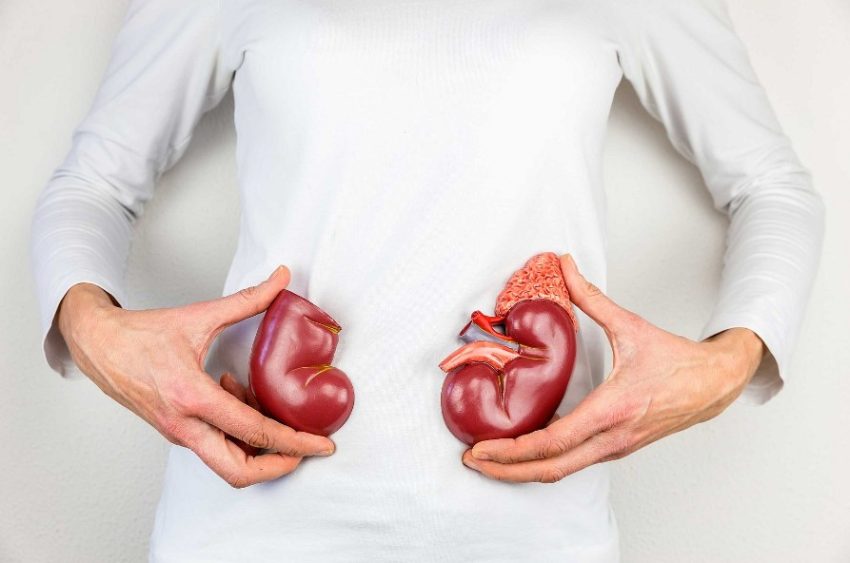The kidneys, those bean-shaped organs in the back of your abdomen, play an active role in maintaining your overall health and well-being.
Kidneys are like complex filters. These tiny organs are responsible for removing waste and excess fluids from your blood, regulating blood pressure, balancing electrolytes, and producing hormones essential for various bodily functions.
According to the best nephrologist in Lahore, it’s imperative to prioritize kidney health through proper care and nutrition because of their pivotal role. So, you should try to take care of this vital organ as much as possible.
One of the most impactful ways to support kidney function is by consuming a balanced diet that includes foods beneficial for these vital organs while avoiding those that can exacerbate kidney problems.
The Nexus between Nutrition and Kidney Health
Diet plays a pivotal role in kidney health. A well-chosen diet can alleviate the strain on your kidneys and help prevent or manage conditions like chronic kidney disease (CKD) and kidney stones.
Certain foods are rich in nutrients that aid kidney function, while others can contribute to kidney stress by burdening them with excessive sodium, potassium, and phosphorus.
Foods to Eat for Kidney Health
Certain foods are full of nutrients and antioxidants that boost your kidney health. These foods include:
- Berries: These colorful gems are rich in antioxidants and vitamins, providing a potent defense against inflammation and cell damage.
- Cabbage: A cruciferous vegetable, cabbage is low in potassium and an excellent source of vitamins K and C, fiber, and phytonutrients.
- Red Bell Peppers: High in vitamins A, C, and B6, red bell peppers are low in potassium, making them a kidney-friendly choice.
- Cauliflower: This versatile vegetable is low in potassium and a great alternative to higher-potassium foods like potatoes.
- Fish: Fatty fish like salmon, mackerel, and sardines are packed with omega-3 fatty acids, which have anti-inflammatory properties.
- Olive Oil: Rich in heart-healthy monounsaturated fats, olive oil can help reduce inflammation and improve cholesterol levels.
- Garlic: Garlic’s potential to lower cholesterol and blood pressure makes it a kidney-friendly seasoning.
- Egg Whites: Egg whites are a high-quality source of protein with minimal phosphorus content, making them a better choice for kidney health than whole eggs.
- Cranberries: These tart fruits are known to help prevent urinary tract infections, which can be common in individuals with kidney issues.
- Whole Grains: Whole grains like brown rice, whole wheat bread, and quinoa provide essential nutrients and fiber without overloading your kidneys.
- Apples: Apples are low in potassium and high in fiber, making them a smart choice for kidney health.
Foods to Limit or Avoid for Kidney Health
While food can help you have a better lifestyle and health, some foods can damage it. Here’s a list of foods to avoid for better kidney health:
- Processed Foods: These are often high in sodium and phosphorus, which can strain the kidneys and worsen existing kidney conditions.
- Canned Foods: Canned soups, vegetables, and other products can be laden with sodium, so it’s wise to opt for fresh or frozen alternatives.
- High-Sodium Foods: Deli meats, fast food, and salty snacks should be limited due to their high sodium content, which can elevate blood pressure and strain the kidneys.
- Red Meat: Consuming excessive amounts of red meat can increase the burden on kidneys and potentially lead to the accumulation of waste products.
- Dairy Products: While dairy is an important source of calcium, excessive consumption can contribute to a higher intake of phosphorus and potassium, so moderation is key.
- Bananas and Oranges: These fruits are rich in potassium, which can be problematic for individuals with compromised kidney function.
- High-Phosphorus Foods: Foods like processed cheese, cola, and certain whole grains should be limited due to their phosphorus content.
- Sugary Snacks and Beverages: Excess sugar consumption can contribute to obesity and diabetes, conditions that can negatively impact kidney health.
- Alcohol: Alcohol can dehydrate the body and affect kidney function, so it’s important to consume it in moderation.
- Artificial Sweeteners: Some studies suggest a potential link between artificial sweeteners and kidney problems. It’s best to minimize the use of artificial sweeteners in cooking.
Conclusion: Nurturing Your Kidneys through Thoughtful Nutrition
The journey to maintaining optimal kidney health starts on your plate. The foods you choose to eat can significantly impact your kidneys’ ability to function effectively.
A diet rich in nutrient-dense, kidney-friendly foods can go a long way in preventing kidney problems and managing existing conditions.
Conversely, being mindful of foods that can potentially strain your kidneys ensures that you’re taking proactive steps toward safeguarding these vital organs.
Remember, while diet is a critical component, it’s essential to pair it with an active lifestyle, proper hydration, and regular medical check-ups to ensure your kidneys remain in top-notch condition.
By making informed food choices and prioritizing kidney health, you are investing in a healthier and happier future.

